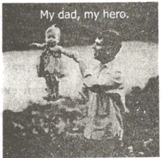阅读理解Want to add some hours to your day? Ok,you probably can't change the fabric of time. But a new study suggests that theway you feel about your goal can change your concept of time and that somesimple strategies could make you feel less rushed.
In a series of experiments, JordanEtkin, a professor of marketing at Duke, and her co-authors, LoannisEvangelidis and Jennifer Aaker, looked at what happens when people see theirgoals as conflicting with one another. In one, they asked some participants tolist two of their goals that they felt were in conflict, and others simply tolist two of their goals. Those who were forced to think about conflicting aimsfelt more time pressure than those who weren't. In another experiment, the researchersgave participants a similar prompt regarding goal conflict, but this timemeasured their anxiety levels as well as their attitudes toward time. Theyfound that participants who thought about conflicting goals had more anxietythan those who didn't, and that this, in turn, led to feelings of being shorton time.
"Stress and anxiety and timepressure are closely linked concepts," D. Etkin explained. "When wefeel more stress and anxiety in relation to our personal goals, that manifestsas a sense of having less time."
Technological advances that allow peopleto do lots of things at once may increase the fe'eling of goal conflict, shesaid."I think the easier it is for us to try to deal with a lot of thesethings at the same time," She said"the more opportunity there is for us to feel this conflictbetween our goals."She isn't the first to suggest that actual busynessisn't the only thing that can make us feel busy At the Atlantic, Derek Thompson wrote that "as a country, we'reworking less than we did in the 1960s and 1980s." He offered a number ofpossible reasons some Americans still feel so overworked, including "thefluidness ffl±) of work and leisure." As he put it:"The idea thatwork begins and ends at the office is wrong. On the one hand, flexibility isnice, On the other, mixing work and leisure together creates an always-onexpectation that makes it hard for white-collar workers to escape the shadow ofwork responsibilities."
And Brigid Schulte writes in her 2014book Overwhelmed: How to Work, Love, and Play When No One Has the Time thatsome researchers believe "time has no sharp edges. What often matters morethan the activity we're doing at a moment in time, they have found, is how wefeel about it.Our concept of time is indeed,our reality.”
Fortunately, Dr. Etkin and her team didfind ways of making us feel better about time—or, at least, of reducing thenegative influence of goal conflict. When participants performed a breathingexercise that reduced their anxiety, the impact of such conflict on theirperception of time was less pronounced. Reframing anxiety as excitement (byreading the phrase "I am excited!" aloud several times) had a similareffect.
Breathing and reframing may not solveeveryone's time problems—Ms. Schulte writes that some Americans are indeedworking more than they used to. She cites the work of the sociologists MichaelHout and Caroline Hanley, who have "found that working parents combinedput in 13 more hours a week on the job in 2000 than they did in 1970. That's676 hours of additionally paid work a year for a family. And that's on top ofall the unpaid hours spent caring for children and keeping the housetogether." Sometimes, we may feel short on time because we actually are.However, Dr. Etkin believes her findings suggest we may "have the abilityto influence our experience of time more than we think we do."
"We're all going to have times inour lives when our goals seem to be in more conflict than others," shesaid. But with techniques like the ones her team tested, "we really canhelp ourselves feel like we have more time."
